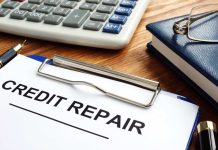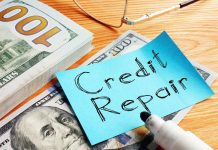
Many homeowners are refinancing their home due to mortgage rates being at near all-time lows. However, what if you already paid off your home? Are there ways that you can still refinance? Luckily, the answer is yes! However, there are a few options that you need to keep in mind considering that your home is already paid off.
What is a Mortgage Refinance
A mortgage refinance is simply when the borrower’s original mortgage is replaced by a new one with updated terms. There are multiple types of refinances but the common ones are:
- Rate-and-Term Refinance
- Cash-In Refinance
- Cash-Out Refinance
Understanding Cash-Out Refinancing
Out of the list above, the one that will impact homeowners that have paid off their home is a cash-out refinance. When a borrower chooses a cash-out refinance then they are able to tap into their home equity and essentially get cash out of their home. Even though there will not be a mortgage that is replaced, the homeowner will still be able to get a mortgage through a cash-out refinance to achieve this goal.
Can You Refinance a Home That is Paid Off?
Since mortgage refinances include replacing an existing mortgage, it can be a little confusing thinking about refinancing your home that’s already paid off (which means you don’t have a mortgage!). There are options that you can consider even if your home is paid off. These include:
- Home Equity Loan
- Home Equity Line of Credit (HELOC)
- Get a New Mortgage
Home Equity Loan
If you want to get cash out of your home then you can consider a home equity loan on your paid off home. The cash that you get from this loan should be used towards debt consolidation, home repairs, and/or home improvements. Homeowners typically choose these loans because they like:
- Fixed Monthly Payments
- Funds in a Lump Sum
- Fixed Interest Rates
Unfortunately, these loans still have closing fees that can range from 2% to 5% of the total loan amount. This results in the overall cost of the loan increasing. Borrowers can generally expect these loans to have lower interest rates than other debts like credit card debt. In the end, these loans still tend to be more expensive than other options in the long run.
Applying for a Home Equity Loan
Homeowners that have paid off their home have an advantage when it comes to home equity loans. Their advantage is the amount of home equity they have! The overall value of the home is what the available amount of home equity is. Homeowners will usually need to get a home appraisal for this type of loan.
Another benefit to this type of loan is the fact that there are not any other liens against the property. This means that the new loan would take the spot of the primary lien which prioritizes the loan to be repaid first in case of foreclosure.
Home Equity Line of Credit (HELOC)
Homeowners have the option to open a line of credit that also taps into their home equity. Individuals who choose this option like to use this as a source of money in times of unexpected expenses. Another benefit to this option is the fact that the amount can change based on your needs. You wouldn’t have a fixed loan amount!
This is also a great option for homebuyers because of the fact that they generally have less costs and fees compared to other equity loan options. However, a drawback to be aware of is the fact that interest rates are variable so they can change. The amount that you borrow is based on your financial need and available equity. Lenders typically set a limit of 80% equity that they are allowed to access (or 90% for an HELOC) . If that limit is exceeded, the homeowner may be required to buy private mortgage insurance (PMI) to help protect the lender.
Get a New Mortgage
When your home is paid off, you don’t have a mortgage. In a typical cash-out refinance, the borrower’s new loan will be worth more than the original loan’s remaining balance. This provides the homeowner the opportunity to tap into their equity. If your home is paid off and you just want to get a mortgage in order to get cash from your home then it is still referred to as a cash-out refinance. It is important to remember that it is not set up like a normal cash-out refinance since you don’t have an existing mortgage!
One big drawback to this option is the fact that you will typically have a higher interest rate than a conventional mortgage. The reason that borrowers face higher interest rates is due to the fact that the cash received can be used towards anything. Lenders have no way of confirming if the cash will go back into the home with home improvements, home repairs, etc. This option also faces higher closing costs and potentially additional requirements like PMI.
However, just as there are drawbacks, there are benefits as well like fixed interest rates. When your interest rate is fixed, it is easier to plan for the monthly expense that you have to pay. This can result in better budgeting which can improve your overall financial health. That’s not all, this option also typically has lower interest rates compared to other home equity loans.
Struggling to Get Approved for a Loan Even If Your Home is Paid Off?
Even though your home is paid off, you still may have difficulty getting approved for a loan. If you find that you are having a tough time then there may be some reasons like your:
- Ability to Repay
- Credit Score
- Loan Amount
- Debt-to-Income Ratio (DTI)
Your Ability to Repay
Lenders take into consideration a bunch of factors in order to determine your ability to repay as a borrower. Most of the time, borrowers will need to verify their financial situation with documentation like pay stubs and tax returns.
Your Credit Score
Your credit score provides lenders an idea about your creditworthiness. If your credit report shows that historically you have been a reliable borrower then it can make it easier to get approved. A good rule of thumb is the better the credit score then the more loan opportunities!
Loan Amount
Depending on your lender and the equity option you choose, you may not be able to access the same amount of home equity. Generally, lenders see borrowers who request more home equity as a higher risk.
Debt-to-Income Ratio (DTI)
Every lender has their own requirements for what a borrower’s DTI should be. However, typically they want a DTI to be less than 43%. This ratio specifically looks at the relationship between your current income and debt. This is a factor that goes into your approval!
How Much Cash Can You Get Out of Your Home?
Even though a home that is completely paid off is all equity, you may not necessarily be able to access that full amount. Your lender may limit the amount that you can borrow based on a loan-to-value ratio (LTV).
Your LTV is the percentage of your home’s appraised value that’s provided by the lender. Typically lenders will have a limit of 80% but can vary depending on who you go to. For example, if the appraised value of your home is $275,000 then 80% of that would be $220,000 that you can access.
What to Keep in Mind When Borrowing Against Your Paid Off Home
It is very important to understand some of the financial risks that you take on when you borrow against your home equity. Some of these risks include foreclosure, your credit score lowering, and more. That is why you will want to ask yourself some questions before making this decision. Remember, this is not a little choice you make. The implications of your decision should be thought about before you rush and choose!
Consider Your Options
It is extremely important to make sure that you consider all of your options if you are just trying to get a lot of cash quickly. You may benefit from getting a personal loan or another line of credit before tapping into your home equity. These other options also don’t pose as much of a risk to the borrower if they mismanage their payments.
How Will You Use the Money
Depending on the option you choose, you may not be able to use the money for any reason. That is why you want to make sure you have a clear understanding of your expectation of how you will use the funds. Generally, it is recommended that borrowers that get cash from their home use it towards home improvements, education expenses, etc. Responsibly handling your home equity is key!
Can You Handle It?
Just because you want to tap into your home equity, doesn’t mean you can handle the financial obligation. You want to make sure that you understand the payment terms and what they entail. If your monthly payment isn’t manageable, then you could potentially default on your loan. Even worse, you could face foreclosure!
Alternatives to Accessing Your Home Equity
If you are only considering options like a cash-out refinance, home equity loan, home equity line of credit (HELOC), etc.just to get a lump sum of money, then you may want to consider some other options like a personal loan or another credit card.
Personal Loan
Instead of a cash-out refinance or a home equity loan, you should consider a normal personal loan. These loans are unsecured and provide the borrower the opportunity to still receive a lump sum of cash. These can be hard to qualify for since there is no collateral but it is still worth looking into!
Another Credit Card
If you just need some money to use then it may also benefit you to just get a standard credit card instead of a home equity line of credit (HELOC). These can offer more rewards, and overall better terms in terms of borrowing depending on your lender.
Understanding Loan Requirements
You will have the upperhand during the approval process since you already own your home completely. This shows lenders that you are responsible to handle a mortgage to a point that it was paid off! However, just because you have the upperhand does not mean that you can skip the underwriting process. The mortgage underwriting process determines a person’s ability to repay the loan. There may be different criteria depending on your lender, so make sure to review before picking who you want to borrow from.
Commonly Asked Questions
The home refinance process can be confusing, especially when you take into consideration the fact that your home is already paid off. That is why it may help to review some commonly asked questions that other homeowners had when learning about this financial component of homeownership!
Can You Use a Paid Off House as Collateral?
Depending on the type of loan you get, you can use your home as collateral. Unfortunately, a drawback to using your home as collateral is the fact that you could face foreclosure if you default on the loan. Even though collateral loans are a great way to provide homeowners with less than ideal credit an opportunity to borrow, there are risks to be aware of.
How are Cash-Out Refinance Rates Figured Out?
The interest rate that you will get for your cash-out refinance varies based on your personal financial situation. Generally you can expect interest rates to be up to .5% higher than the rates of a no-cash-out refinance. Your lender will look at a variety of aspects like your LTV, credit score, etc. when determining what your interest rate will be.
When Should You Consider Tapping Into Your Home Equity or Getting a Cash-Out Refinance?
If you have enough home equity, qualify for low interest rates, and plan on staying in your home for a few years then you may benefit from getting cash out of your home. However, it is important to find an option that works for your current financial situation. You should avoid doing this if you want to try and consolidate debt but end up just creating more for yourself. You need to make sure you can handle this!
How Long Will it Take to Receive the Money?
Each option will have it’s own wait time but usually you can expect to receive funds around 30 days. Make sure you don’t overly rely on this money since you can’t get the funds right away.
Consider Talking to a Housing Counselor
If you find that you are struggling to make a decision then it may help you to talk to a HUD-approved housing counselor. These counselors have gone through special training and are certified at helping individuals handle housing. The best part? These counselors can help anyone who needs information and assistance, not just those who are low-income! Some services may be free, so see what additional help you can get from your local HUD-approved housing counselor. Whether you are interested in getting a cash-out refinance, home equity loan, home equity line of credit (HELOC), etc., they will be able to help you better navigate your situation by providing you more information, suggestions, and/or solutions. You can find available counselors near you online by checking out this website.
Overall
Even though you have paid off your home, you may be able to still get a cash-out refinance (even if it doesn’t act as a conventional refinance). However, there are other options that can provide you the opportunity to tap into your home equity like a home equity line of credit (HELOC), or a home equity loan. Each option has its own advantages and disadvantages. What will be the right pick for you depends on your current financial situation. You want to make sure you compare other options like a personal loan or additional line of credit before you choose to tap into your home equity if you are just looking for some money. Your motivation is also important when figuring out which option you should choose. Take your time to research and even talk to a housing professional if you need more information!
Article References
https://www.valuepenguin.com/mortgages/home-equity-loan-closing-costs
https://www.southlandcu.org/borrow/home-loans/home-equity/




























